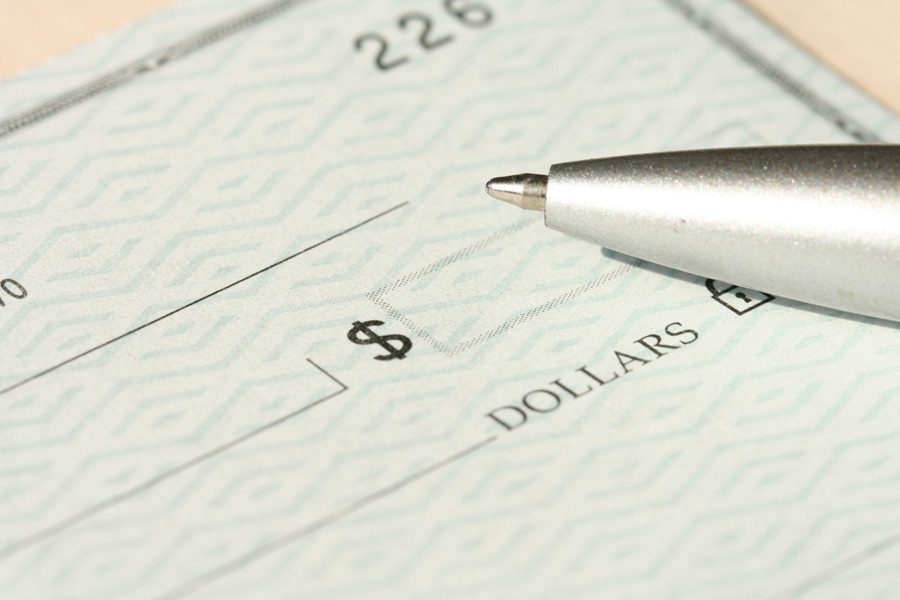By Pavel Stich / COPYWRITER & SEO SPECIALIST
Last Updated: January 2026
Unexpected expenses like medical bills or car repairs can derail your budget, many Americans turn to quick financing options. You might search for “guaranteed loan approval” or “no credit check loans” hoping for an easy solution, especially if your credit score hovers below 600. However, the truth is more nuanced than the bold promises from some lenders suggest. As we navigate 2026 a year marked by lingering inflation pressures and a $253 billion alternative lending market these loans offer accessibility but come with significant risks. Direct lenders often promote them as lifesavers for those with bad credit, yet borrowers must approach them wisely to avoid debt traps.

This article dives deep into the mechanics of no credit check loans, exposes the myths around guaranteed approval, and provides practical guidance based on the 2026 data from sources like the Consumer Financial Protection Bureau (CFPB) and the Federal Reserve. Whether you’re considering a payday loan or an installment option, you’ll find actionable insights here to make informed decisions.
Understanding No Credit Check Loans
No credit check loans appeal to borrowers who face barriers with traditional banks. Lenders skip the hard credit inquiry that could ding your score further, focusing instead on your income and employment stability. But what exactly do these loans entail?
What Are No Credit Check Loans?
Essentially, these are short-term or installment loans where providers don’t pull your credit report from major bureaus like Equifax or TransUnion. Instead, they verify your ability to repay through bank statements or pay stubs. In 2026, popular types include payday loans, which you repay on your next paycheck, and installment loans, which spread payments over months.
Applying does NOT affect your credit score!
For instance, the Federal Reserve’s 2024 Economic Well-Being Report (updated with 2026 projections) shows that about 5% of U.S. adults used nonbank products like payday loans in the past year, a figure that’s risen amid economic uncertainty. Direct lenders, such as those networked through platforms like MoneyMutual or Honest Loans, dominate this space, offering amounts from $100 to $5,000.
How Do They Work?
You apply online or in-person, provide proof of income, and often receive funds the same day. Approval hinges on factors like steady employment rather than your FICO score. However, interest rates soar—averaging 23.53% APR for three-year terms per Experian data from early 2026, but skyrocketing to 300-400% for shorter payday options, according to Bankrate analyses.
Moreover, while no hard credit check occurs, some lenders perform soft checks or report payments to alternative bureaus, which could indirectly affect your credit over time.
The Reality Behind Guaranteed Loan Approval
You see ads promising “guaranteed loan approval” from direct lenders, but reality checks in quickly. No legitimate lender can truly guarantee approval because federal regulations require them to assess repayment ability. The CFPB emphasizes that claims of guaranteed approval often signal predatory practices.
In truth, approval rates for no credit check loans hover around 80-90% for eligible applicants, per 2026 industry reports from Forbes Advisor. However, you must meet basic criteria: be at least 18, have a valid bank account, and earn a minimum income (often $1,000 monthly). If you fall short, denial follows—proving that “guaranteed” is more marketing hype than fact.
Additionally, states like California and New York impose caps on interest rates (36% APR max in some cases), limiting what direct lenders can offer. Therefore, always verify lender licensing through your state’s attorney general to avoid scams.
Pros and Cons of No Credit Check Loans
Before you commit, weigh the benefits against the drawbacks. These loans fill gaps that traditional financing ignores, but they can exacerbate financial strain.
| Aspect | Pros | Cons |
|---|---|---|
| Accessibility | Quick approval for bad or no credit; funds in hours. | High rejection if income is unstable. |
| Interest Rates | Fixed terms provide predictability. | APRs often exceed 300%, per 2026 Bankrate data. |
| Repayment | Flexible installments in some cases. | Short terms lead to rollover fees, trapping 75% of borrowers in cycles (CFPB 2025 stats). |
| Impact on Credit | No hard inquiry protects your score. | Late payments may be reported, worsening credit. |
| Loan Amounts | Up to $5,000 from platforms like Honest Loans. | Smaller sums than bank loans, limiting utility. |
As you can see, the pros shine for emergencies, but the cons demand caution. For example, NerdWallet’s 2025 review notes that borrowers often pay $15-$30 per $100 borrowed, equating to triple-digit APRs.
Key Statistics and Trends in 2026
The landscape evolves rapidly. According to GlobeNewswire reports, searches for “no credit check loans guaranteed approval” surged 340% in 2026, driven by rising living costs. The Federal Reserve reports that 34% of adults applied for credit last year, with denials up due to tighter standards—pushing more toward alternatives.
Furthermore, the average personal loan rate stands at 12.26% overall (Bankrate, October 2025), but no credit check variants average higher at 23-35% for installment types. In states without rate caps, payday loans hit 391% APR on average, per CFPB data.
Applying does NOT affect your credit score!
Interestingly, AI-driven platforms like Upstart approve 27% more borrowers than traditional models, blending no-credit-check elements with machine learning for fairer assessments.
Regulations and Consumer Protections
Regulators step up in 2026. The CFPB’s open banking rule, effective this year, mandates data sharing to promote competition, potentially lowering costs for bad-credit borrowers. Meanwhile, the FTC warns against upfront fees and pressure tactics in no credit check ads.

States vary: Illinois caps payday rates at 36%, while Texas allows higher but requires disclosures. You should report suspicious lenders to the CFPB hotline. Additionally, the Military Lending Act protects service members with a 36% APR cap, a model advocates push nationwide.
Therefore, always read the fine print lenders must disclose total costs under the Truth in Lending Act.
Alternatives to No Credit Check Loans
You don’t have to settle for high-cost options. Consider these instead:
- Credit Union Loans: Many offer payday alternative loans (PALs) with APRs under 28% and no credit check for members.
- Secured Loans: Use collateral like a car title for lower rates, though repossession risks apply.
- Peer-to-Peer Lending: Platforms like LendingClub perform soft checks and connect you with investors.
- Credit Builder Loans: From apps like Self, these build credit while providing small funds.
- Government Assistance: Programs like SBA loans or USDA housing aid offer guaranteed elements without predatory terms.
By exploring these, you avoid the pitfalls while addressing your needs.
How to Choose a Direct Lender
Selecting a reputable direct lender prevents headaches. First, check BBB ratings—aim for A+ like MoneyMutual’s. Second, compare APRs via tools like Experian. Third, read reviews on Trustpilot for real-user experiences.
Moreover, ensure the lender reports positive payments to build your credit. In 2026, platforms like RadCred use AI for faster matching, but verify their network’s state compliance.
Frequently Asked Questions
Can I really get guaranteed loan approval with no credit check?
No lender can legally guarantee approval, as they must verify repayment ability. However, if you meet income requirements, chances are high around 80-90% per 2026 Forbes data.
What are the average interest rates for no credit check loans in 2026?
Rates vary: Installment loans average 23.53% APR for three-year terms (Experian), while payday options can reach 391% (CFPB).
Are no credit check loans safe?
They can be if from licensed direct lenders. Avoid those demanding upfront fees, and report issues to the FTC.
How do I apply for a no credit check loan?
Online applications take minutes: Provide ID, income proof, and bank details. Funds often arrive same-day.
What alternatives exist if I have bad credit?
Try credit unions, secured loans, or credit builders. Government programs like FHA loans also help without strict checks.
In conclusion, no credit check loans provide a bridge during tough times, but they’re no magic bullet. You gain speed and accessibility, yet high costs and risks lurk. By understanding the truths backed by 2026 data you empower yourself to borrow smarter. Consult a financial advisor for personalized advice, and remember: Building credit long-term beats quick fixes.
Applying does NOT affect your credit score!


